- (65) 9646 0930


7 Essay Types at the O Level
- Posted By Randall Chew
Hello everyone! I’m Mr Ng Guo Liang, an English Language Curriculum Specialist and Teacher at Lil’ but Mighty.
When I was still teaching in a secondary school, I often had to address many questions — from both parents and students alike — about the different composition or essay types being tested in the O Level examinations; chief amongst which were:
– What composition or essay types will appear in the O Level examinations? – What is the difference between a discursive essay and an argumentative essay? – What is the difference between a recount and narrative essay? – What is the difference between a descriptive and reflective essay?
There were (and are) of course, many other questions pertaining to composition writing for the O Level. The ones above however — those concerned with conceptualising the types of compositions — are the ones I have had to address the most. In this blog post therefore, I will list the various types of compositions that could be tested in the O Level English Language Paper 1, and attempt to very briefly describe each of them.
Before I continue, I must make a disclaimer. This post is not meant to be a comprehensive set of notes or guide detailing and explaining each individual essay type, their features, and nuances. I must make it very clear to my readers that what I write and elaborate on in this post should not be taken as the absolute and definitive word on the various essay types; we should note that different teachers, authors, publishers, and reference materials describe, explain, and conceptualise the various essay types differently (and very possibly with different terminology). That being said, the descriptions I’ll make in this post are meant only as a very brief explanation of the various types of essays so that you can better understand what they generally require students to address in the examination.
Should you wish to enquire about and discuss the individual essay types at a more comprehensive and deeper level than that provided in this post, you can do so with your English teacher in school, or contact us and we shall endeavour to address your queries!
In the O Level examination, the following essay types could be tested:
1. Narrative 2. Personal Recount 3. Descriptive 4. Reflective 5. Discursive 6. Argumentative 7. Two-Part Essays
1. Narrative Essays

Narrative essays, as the name suggests, are essays that narrate a story. Most students reading this post should, by the end of primary school, be familiar with narrative essays as this is perhaps the essay type that they see the most in primary school and in creative writing classes. These essays are generally fictional in nature, and adhere to how narrative stories are developed in terms of their plots (beginning —> build up —> climax —> events that lead to a resolution —> a resolution —> and a coda/conclusion). Although these essays are generally fictional, that is not to say that students cannot use their own experiences to address the question. As long as the experience is relevant to the question, and features a rising plot which leads to a resolution, students are free to use their own experiences to inspire the narrative essay.
Sample questions:
– Freedom. – A challenge. – Write a story about kindness. – ‘It was my proudest moment.’ Write a story based on this.
2. Personal Recount Essays

Similar to a narrative essay, a personal recount essay retells a series of events that should be written in a linear and sequential manner. A personal recount essay is not to be confused with a narrative one. Narratives are often fictional in nature, and generally adhere to a rising plot development structure (most often with a climax and resolution). Personal recounts however, are not fictional in nature, and often relate to an event or experience which is meaningful or memorable to you (in other words, you should have personally experienced or witnessed this event or experience taking place.) Depending on the question asked, it can, of course, include a plot structure with elements similar to a narrative. However, unlike narrative essay writing, it does not require students to adhere strictly to a rising plot structure.
Personal recount essays, by nature of the questions given, typically require students to include an element of reflection. This usually focuses on the impact and significance that an event or experience have on them, and their thoughts, feelings, changing beliefs and attitudes as the series of events unfold. Such reflections should be interspersed and woven in and between the paragraphs of the essay. This is different for narratives, where reflections typically appear in the coda.
– Write about an interesting day out with your family. – Write about a mistake you regret making. – Write about how you conquered one of your fears. – Write about a task which turned out to be more difficult than you initially thought. – Write about a time a great act of kindness took place.
3. Descriptive Essays
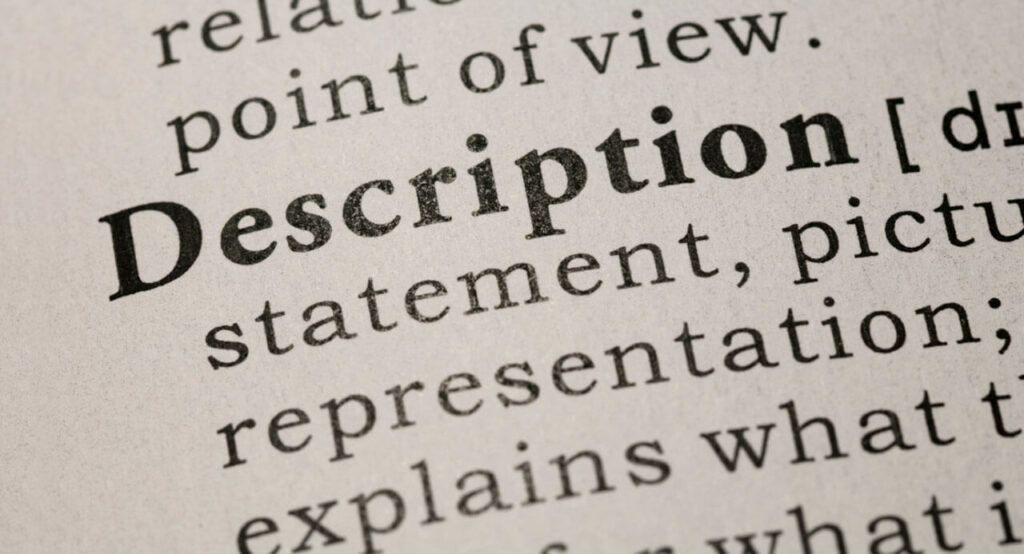
Descriptive essays contain and emphasise descriptive elements. That is to say, such essays are written to appeal to the five senses, and should create vivid mental images for the reader when it is being read. This genre goes beyond describing physical attributes, but abstract ones as well (e.g. feelings, ideas, or a situation), and often involves reflecting on why something or someone is special or important. Unlike narrative essays, descriptive essays do not require a plot structure or storyline. This essay type most typically require students to write about and describe in detail one of the following topics:
1. An object 2. A person 3. A place 4. An event or incident 5. An experience
– Describe an individual who has had a great influence on you. – Describe a memorable celebration. – Describe your typical day in school. – Describe an object which you hold dear.
4. Reflective Essays

Essays of this genre require the students to reflect on themselves. Despite the reflective element, this is not to be confused with a personal recount. Personal recounts require students to recount and reflect on an event or experience which actually took place. Reflective essays however, are not about an event or experience, but are more about the students themselves.
Reflective essays typically require students to reflect on and make observations about their own personality and character. As such, it is more philosophical and insightful in nature.
Sample Questions:
– What would you consider to be your best and worst qualities? – What is your idea of a perfect day? – What are the type of books you enjoy reading? – Write about some of the things you value most in life.
Expository Essays: Argumentative and Discursive Essays
The next two essay types fall under the category we call ‘expositions’. An expository essay is one that explores and considers in depth the different aspects and perspectives to a particular topic or subject matter. We typically see two types of expository essays appearing in the O Level examination: argumentative and discursive essays.
5. Argumentative Essays

In an argumentative essay, students are typically given an issue, topic, or subject matter on which they are supposed to take a clear stand, and argue for that stand they have taken. This essay type is ‘biased’ in that regard, and the aim of the essay is to persuade the reader, with the strength of their points and arguments, that the stand taken in the essay is the right one.
1. The key features of an effective argumentative essay are: 2. There must be a very clear stand taken on the topic/subject matter given in the question. 3. Points/arguments given are supported by facts, statistics, observations or examples. 4. Points/arguments appeal to logic and emotion. 5. Using a persuasive tone and register. 6. Considering the opposing views and being able to rebut or refute them – this makes an argumentative essay the most persuasive and effective.
– ‘People can only be happy if they feel they are treated fairly.’ Do you agree (2019 O Level 1) – Do you agree with the view that students should never engage in part-time work? – ‘Social media has destroyed communication.’ What is your opinion? – Who has more problems to deal with — adults or youths?
6. Discursive Essays

Like argumentative essays, a discursive essay focuses on and concerns itself with one particular topic or subject matter. Unlike the argumentative essay however, one is not required to take a stand on the subject matter. Rather than pushing for and validating only one particular perspective, students are required instead to discuss and explore the multiple perspectives regarding the subject matter in an unbiased manner.
What is important to note is that students can state a preference for a particular perspective or viewpoint at the end of the essay, but the tone and register of the essay should not be a persuasive one (i.e. the way the essay is written should not dominantly favour one particular perspective or viewpoint over others). It should be written in a manner which reflects that all the perspectives and viewpoints you discuss in the essay are equally valid (even if you do eventually state a preference for one at the end) — in essence, an effective discursive essay is one that achieves balance .
– What are the advantages and disadvantages of social media? – What are the qualities a good leader should have? – Discuss the implications of making home-based learning a permanent mode of education. – Discuss your views on discipline.
7. Two-Part Essays

As the name suggests, two-part essays are essays which could comprise features and elements of two different essay types. What you will typically see is a question which explicitly has two distinct and separate parts students would have to address. For instance, the question would not only require students to describe something or someone, but also require them to reflect on that particular thing they are describing in the essay; such that the essay becomes a ‘mixed-genre’ essay.
For two-part essays, students need to ensure that they address both parts of the question, and do not make the common mistake of devoting too much time and too many words to the first half of the question and neglecting the second half of the question.
– Write about a mistake you regret making. What lessons did you learn from it? – Describe an individual who has had a great influence on you. Why is this person so special to you? – Describe an object which you hold dear. Why is this object so important to you? – Write about a time you were misunderstood by others. How did you feel?
This brings us to the end of this blog post. Although there is much more to the respective essay types regarding their features and styles, I hope that I have managed to provide you with brief but lucid explanations that will make it a little easier for you to understand the various essay types that could be tested in the O Level.
Until my next post, and on behalf of the Lil’ but Mighty family, stay happy, stay safe, and stay healthy!
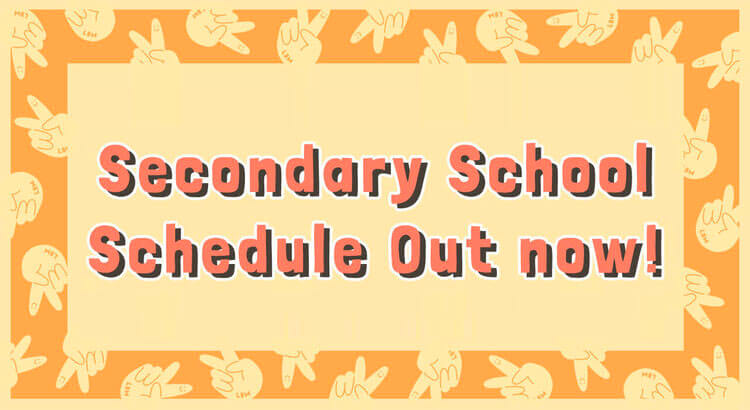
- Fine Out More

Mr Ng firmly believes that there is a strong correlation between effort and eventual success, and that finding success in English is something that is attainable by all of his students regardless of their background and starting point. He has a strong love and passion for the language and hopes to inspire that same passion in his students through his lessons. That being said, he looks forward to bringing out the best in his students and guiding them to fulfil the potential they all have.
Have something to share? Drop us a comment below!
Leave a reply.
You must be logged in to post a comment.
Other related posts

Creative Writing | 3 Easy Steps to Write Your Own Haiku!
- Creative Writing & Compo
Verbs: More than Just Action Words! | Part 3: Changes in Verb Forms
Ketchup on english – is, are, was and were.
- Grammar , Lower Primary
Audience In Visual Text | Visual Text Comprehension
- Visual Text Comprehension
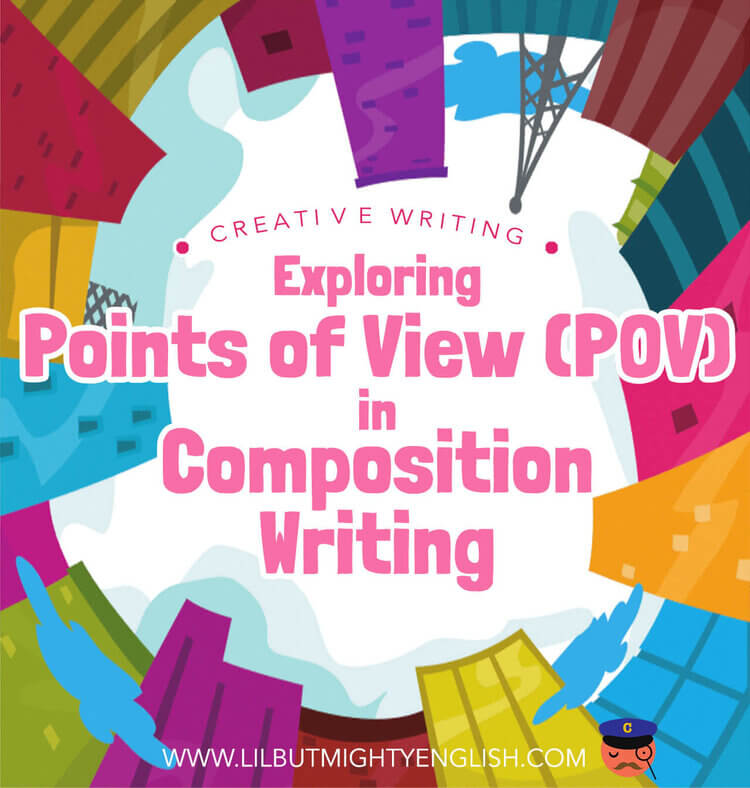
Exploring Points of View (POV) in Composition Writing
Metaphors for | part ii – implied metaphors.

10 Beautiful Vivid Verbs to Boost Your Writing and Oral! | Primary School English
- Creative Writing & Compo , Oral
Metaphors For? | Part I – An Introduction to Metaphors

3 Family-Friendly Shows on Netflix (Educational & Entertaining)!
- English in the real world
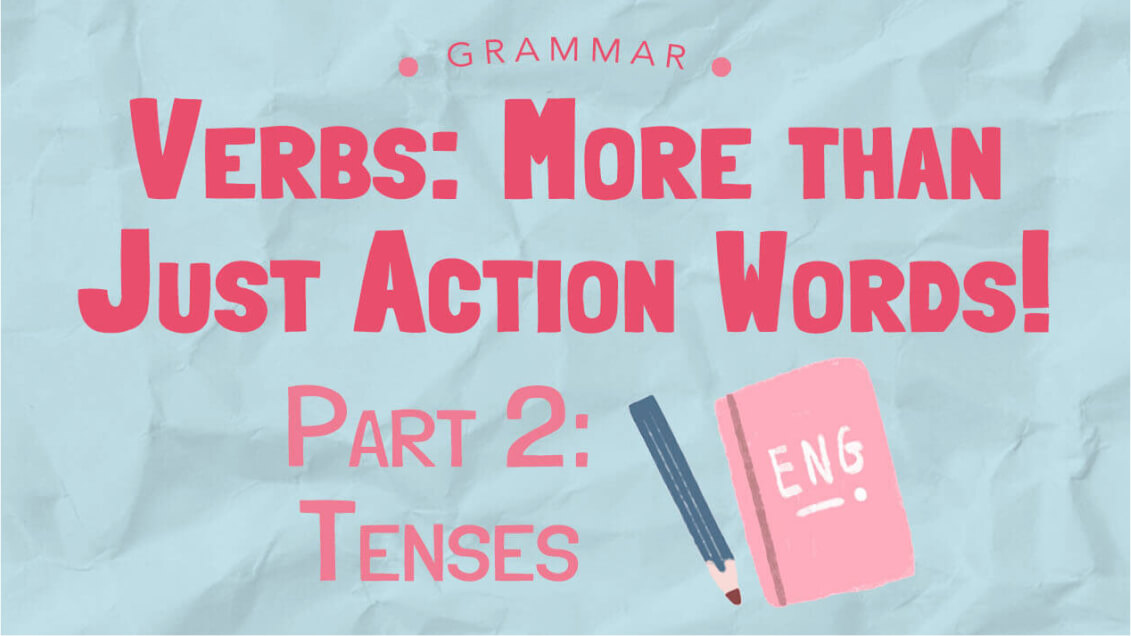
Verbs: More than Just Action Words! | Part 2: Tenses
2021 father’s day contest winners.
- Company News
Verbs: More than Just Action Words! | Part 1: Subject-Verb Agreement

10 Beautiful Words You Can Use in Narrative / Descriptive Writing | Secondary School
- Secondary School English

Ways To Create A Well-Rounded Character | Creative Writing
Understanding purpose-related questions in visual text comprehension.

How Playing Video Games Can Improve Our English (With Practical Tips for Parents!)

Primary School Composition | Onomatopoeia – What’s That?
2021 mother’s day contest winners + our founder’s journey (mother’s day special).
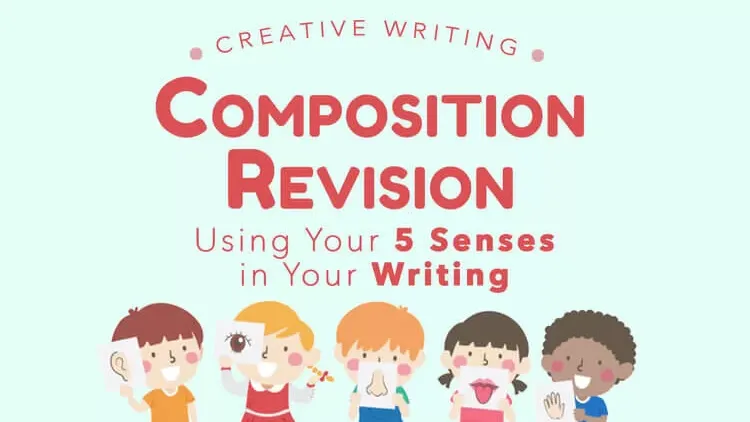
Composition Revision: Using Your 5 Senses in Your Writing
How to create a dynamic piece of writing using idioms, ketchup on english – subject-verb agreement, punctuation marks: colon vs. semicolon.

4 steps to Create Suspense

Earth Hour – Oral Topic
That simile though 2 | using stronger similes.

Phrasal Verbs List: Part 3 – Give and Take

PSLE ORAL | Compiled Prelim 2021 Oral Topics + Questions!
- Free Downloads , Oral
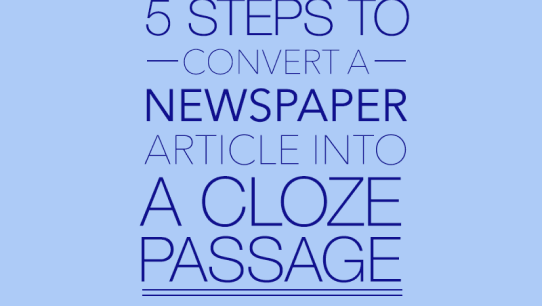
5 Steps to Convert a Newspaper Article into a Cloze Passage
- Cloze Passage and Editing , Free Downloads , Primary School English

PSLE English | Oral Conversation: Free SG50 Sample Practice + Model Answers
- Free Downloads , Oral , Primary School English

PSLE English | Oral Conversation: Filling your Story with Details Easily + Free Revision Cards
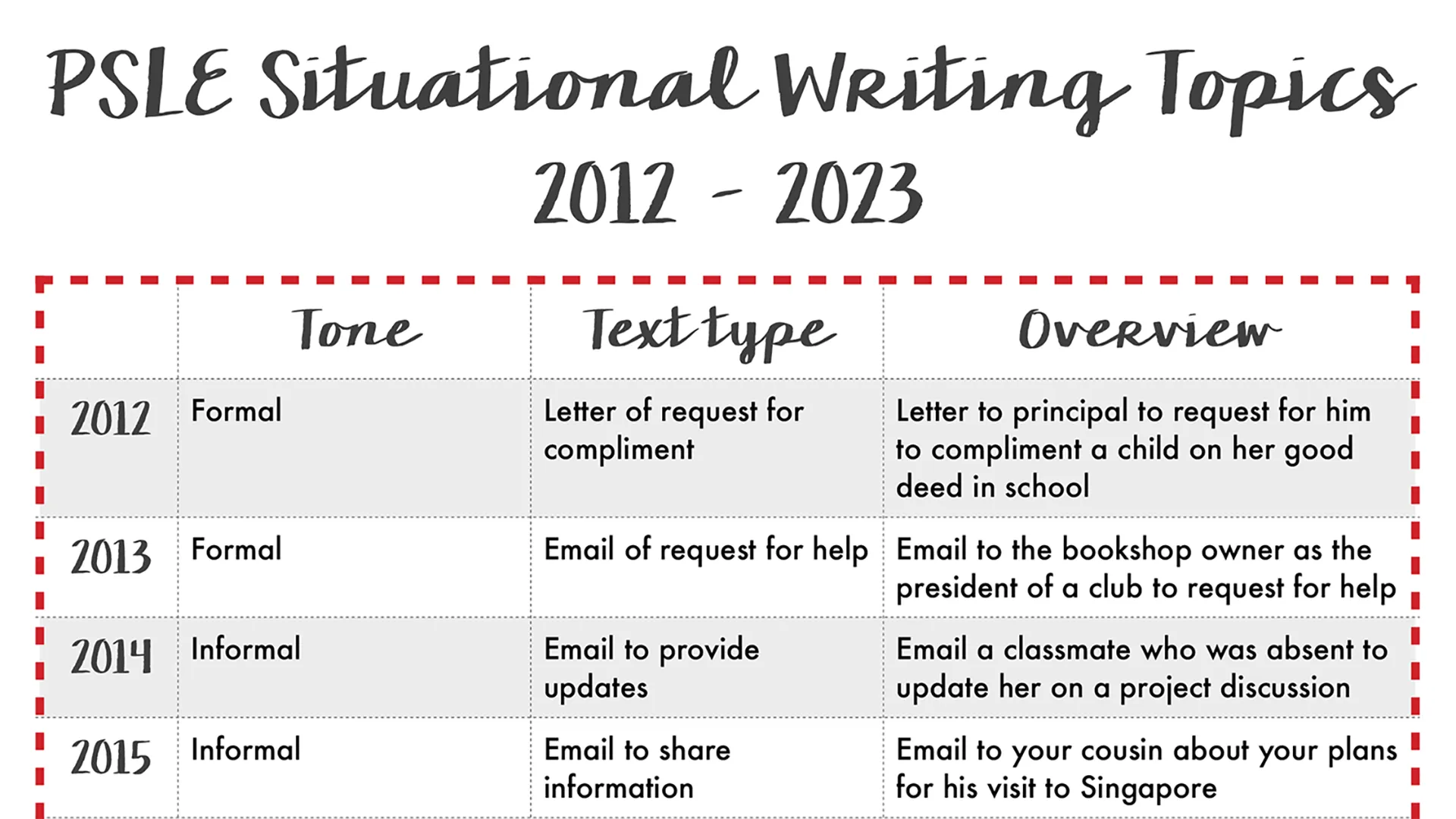
PSLE English | Situational Writing: Q&A + Formal vs Informal Writing Comparison Chart
- Free Downloads , Primary School English , Situational Writing

PSLE English Tips | Oral: Stimulus-Based Conversation Checklist

A Little Encouragement | DIY Motivational Bookmark (Easy to personalise too!)
- English in the real world , Free Downloads , Reading

Situational Writing: Step-by-Step Guide + Free Revision Card

I Love Reading | 5 Ways to Motivate Reluctant Readers
- English in the real world , Free Downloads

PSLE English | Printable Ultimate Grammar & Synthesis Summary
- Free Downloads , Grammar , Sentence Synthesis
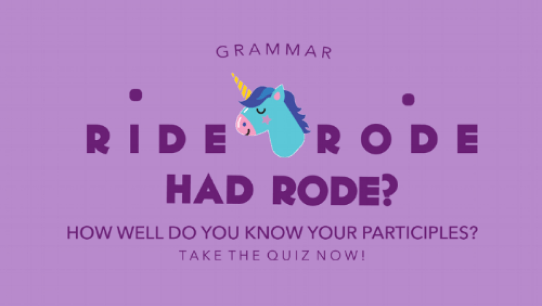
How Well Do You Know Your Past Participles?
- Free Downloads , Grammar

Primary Composition Writing | Starting Sentences with Introductory Clauses
- Creative Writing & Compo , Free Downloads

The Sentence Train | Lower Primary English

PSLE English Tips | Oral: Reading Checklist
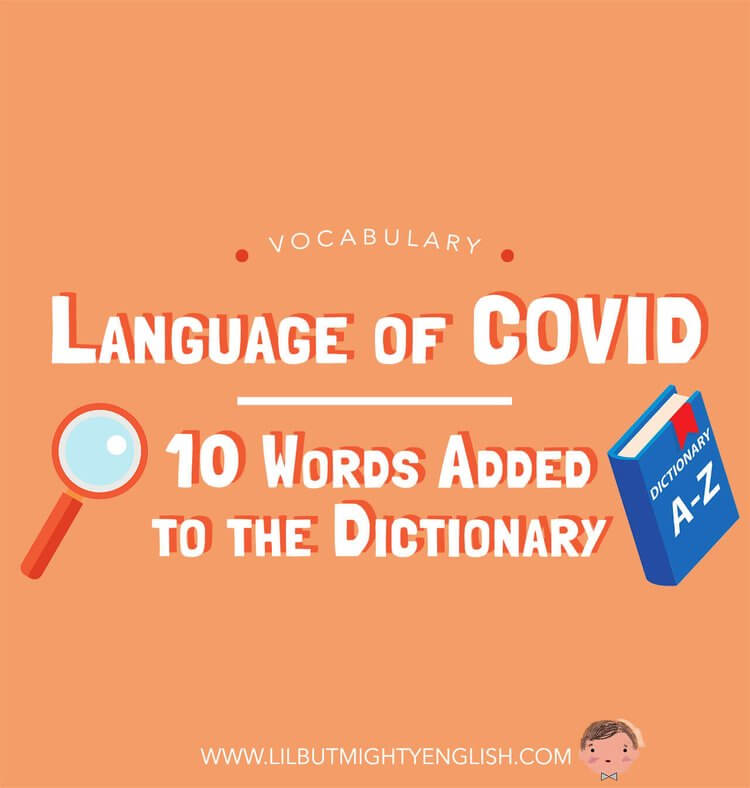
Language of COVID | 10 Words Added to the Dictionary
- English in the real world , Vocabulary

Using Personification to Show, Not Tell!
- Creative Writing & Compo , Primary School English
Expressing Character Feelings Too! | Using Show-Not-Tell (Part 2)
How to choose a book to read: 8 ways.

How to Dress Up A Boring Paragraph | Creative Writing
Ketchup on english – halloween special: prepositions of time.
- Lower Primary
Ketchup on English! – Verbs Are Not Just Action Words!

Expressing Character Feelings | Using Show-Not-Tell
Which picture should i use | choosing the best picture to use for composition.

Oral: Reading Passage | Long Vowels – Have You Been Reading Your Vowels Correctly?
Like what you are reading.
Subscribe now to receive news and tips hot off the press!
The greatest joy in giving small group tuition is a teacher’s ability to create greater impact in the children that have been entrusted to her care.
Our Programmes
- Primary English
- Secondary English
- Self-Paced Online Courses
- School Clients
- Copyright Terms & Conditions
- Personal Data Protection Policy
- Registration Terms & Conditions
- Contest Terms & Conditions
Lil’ but Mighty Clementi Block 432 Clementi Avenue 3, #01-282, Singapore 120432
Lil’ but Mighty Bukit Timah 170 Upper Bukit Timah Road, #B2-02 Bukit Timah Shopping Centre, Singapore 588179
Lil’ but Mighty Hougang Block 211 Hougang Street 21, #01-305 (Back entrance), Singapore 530211
Lil’ but Mighty Novena 1 Goldhill Plaza, #02-25, Singapore 308899
Lil’ but Mighty Marine Parade 1 Marine Parade, #04-05 Parkway Centre, Singapore 449408
Lil’ but Mighty Tampines 3 Tampines Central 1, #06-03 Tampines Plaza 1, Singapore 529540
Ultimate Resource For Cambridge Assessment International Education
Argumentative essays.
Argumentative Essays – Tips & Tricks
- Read the topic carefully. Underline the main point of the topic (such as Politics).
- Decide ‘for’ or ‘against’ (i.e. are you in favour or against?).
- Jot down all the RELEVANT & LOGICAL points related to your opinion. Spend 5-10 minutes doing this in the form of notes. No emotional reasons should be included. As we say in Urdu, don’t be “ jazbaati “.
- Starting – No quotes are needed; some books/resources will tell you to state your opinion at the start or by the end. In the paper, state it at the BEGINNING of your essay, most preferably in the opening paragraph.
- Ease into the topic then generally give your opinion. For example: “The trend of social media has greatly increased over the last four years. Nowadays, it has become a necessity for teenagers. I personally believe ……..”
- Start directly by exclaiming a valid point and giving your opinion. “Social Media, recently, has had a great negative/positive impact on teenagers. My personal opinion is that ……..”
- General “For” Argument – Include all valid points that are logical and EMPHASIZE on them – All points must be in favour of your opinion and they should be your STRONGEST points.
- Counter Argument – Pick out you’re strongest counter arguments and state them. Be completely logical and honest when pointing the counter arguments. The reason for this is that if you’re writing in favour, someone else will write against. You have to give both sides of the argument and prove yourself right.
- Disputing Counter Arguments – After writing the counter arguments, you must dispute them and prove them to be either wrong or not STRONG enough to win the argument. Here’s an example:
A counter argument could be “ Social media is required for teenagers, it forms a platform for conversations, discussions and sharing valued information “.
Disputing this counter argument “ Although it does provide a medium for communication, teenagers waste most of their precious time in procrastinating since they needlessly read comics/have useless discussions. Social media is one of main reasons why teenagers procrastinate. “
You can also add the fact that other mediums of communication such as e-mail, messaging are also available.
- Conclude your essay by restating your opinion in a different perspective, i.e. you could say, “Other resources of communication should be adopted such as messaging and teenagers should be encouraged to have outdoor activities rather than sit home and stick their heads to the computers.”
- After disputing you’re counter arguments – finish on a high by adding a strong ending sentence to conclude your essay. For example “Hence all these points show that Social media is indeed an unnecessary part of life which has been forcibly indulged into the life of teenagers.”
- You’re not listing points or stating your opinion. You’re trying to CONVINCE the examiner that you’re opinion is correct using LOGICAL points.
- Don’t get emotional and carried away over the course of your writing. Don’t be prejudiced.
- DO NOT EMPHASIZE TOO MUCH ON VOCABULARY. Sentence structures, punctuation, tenses are all equally as important as vocabulary. Don’t forcibly use strong words if you don’t know their correct usage.
- You’re not making a list of your points. Don’t use “firstly, secondly, thirdly and finally”. Remember, you’re language is being tested. Use good expressions and connectives such as “Furthermore, In addition to this”.
http://www.slideshare.net/englishbites/useful-argumentative-essay-words-and-phrases
Here is a great website concerning words and expressions. Do read it.
Difference b/w Discursive and Argumentative Essays:
In Discursive essays, you present a balanced argument that contains ‘for’ and ‘against’ points. You do not state your opinion.
In Argumentative, you give your opinion and convince the reader on your point of view.
Example Argumentative Essay:
Some people say that the Internet does more harm than good. What is your view? To majority of teenagers and working adults, the Internet has been regarded as one the most innovative achievements of humankind. Since the invention of the internet, its pervasive and life-altering influences can be felt in many aspects of people’s daily lives. While mostly beneficial in areas such as communication, trade and research, the internet has also caused a proliferation of vices such as pornography and hacking. Despite the negativity associated with the internet, I strongly believe that Internet does more good than harm.
Communication all over the world has been considerably improved thanks to the Internet. With the widespread availability of messengers and social networks like Yahoo and Facebook, people can easily communicate irrespective of their geographic locations. Gone are the days when international communication meant a delay of several days to months. Today, interaction through the Internet is not only much cheaper and more convenient than traditional modes of communication, it also has options to allow face to face interaction such as through the use of Skype. Now, family members and businesses can not only have instantaneous communication, they can also have the added personal touch even if they are in different continents or in any remote part of the world.
The Internet is one of the key contributors to the global free trade. When the transnational corporations want to open business in the other countries, they first have to contact partners in those countries before officially making a deal. In such case, the Internet certainly does a great job. Furthermore, the internet is instrumental in reducing operation costs for businesses where employees can be easily hired from developing countries and work remotely from their native land. For example, many transnational companies set up call centres in countries like Philippines or India where workers are cheaper to employ. The same benefits are applied to people’s daily lives. With the omnipresence of online shops, many people are able to save their precious time shopping. Instead, they have more time to do other important things such as helping their children do homework or having a short visit to their parents’ house.
On the other hand, objectors of the Internet argue that it spoils the young generation by spreading pornography and violence, which is considered rampant nowadays. There is no doubt that pornographic websites and violence videos are ubiquitous online, but whether the young is spoilt by it depends on the young themselves. Owing to the continual warning of using the Internet on many cyber education programs, the youths are supposed to know about all the boon and bane effect of surfing webs. Thus, once they have heightened awareness, there is likelihood that they will not be attacked by cyber hackers. Moreover there is a variety of information for their researches on line. Instead of spending hours of flipping over hundreds of books in the libraries, one may easily obtain necessary documentation within a second of mouse click.
Similar to any other technological inventions, the Internet has both pros and cons; nonetheless, its benefits far outweigh its harms. With recent upgrading Internet security software and substantial improvements on its use, I am firmly convinced the Internet is more a blessing than a curse.
Here are some pointers from the IGCSE Examiner Tips:
- Be clear about the difference between an argumentative and a discursive essay. When asked directly to give your own opinion you should commit yourself to a line of argument. When asked to give a range of possible views then you are being discursive and may or may not choose to say what you personally believe.
- Mention counter arguments – and dispute them. A strong argument includes refutation of the other point of view. This way you can show that you are not being purely ignorant or prejudiced in your response. It is important to show balance in presenting the argument.
- If you are having difficulty finding enough points to support your stance you should consider arguing the opposite view – it might be easier!
- Aim for an effective introduction which captures attention and makes the topic and context clear
- You should end on the side you are arguing for structure your essay so that you deal with the other side first and end strongly to clinch your argument with a final convincing point . Do not repeat yourself – ‘To sum up’ and ‘In conclusion’ are not strong endings as you won’t be saying anything new to convince your reader.
- It is generally advisable to argue your own personal viewpoint as it is likely to sound more convincing. It is however, possible, to argue effectively for or against an argument which you have never considered before, provided that you can marshal some evidence from the media, facts, statistics and experience. These are the areas from which you draw your supporting detail and illustration.
- Do not get too passionate about the topic as this will make your essay sound too emotional and subjective, and therefore less persuasive.
- Sometimes there is a single word in the question which alters the emphasis of the argument, for instance the word ‘compulsory’. Make sure you pay attention to the key words in questions when you are planning and answering – it is worth underlining key words to remind you.
- Try using personal pronouns – ‘I’, ‘you’ and ‘we’ can make your argument seem more authentic and inclusive.
- Do not start each paragraph with a numbered point- firstly, secondly, thirdly and so on- as this can get tedious for the reader and sound quite artificial if the ideas are not in fact sequential. Use other paragraph linking words, the ones which show whether your argument is continuing in the same direction (e.g. ‘furthermore’, ‘in addition’) or changing direction (e.g. ‘nevertheless’, ‘on the other hand’). The key is to make sure that your argument is “building” as you go. Use your connectives to help you take your reader with you so that they can follow your train of thought all the way through.
- Three-point structures (sometimes called tricolons) can sound authoritative, e.g. ‘involving the learners, the teachers and the parent’. More than three of anything becomes a list; fewer lacks persuasive impact and overuse of tricolons is rarely effective.
This site uses Akismet to reduce spam. Learn how your comment data is processed .
where your rebuild Naaya
I have a confusion in writing an effective thesis statement.
how do you differentiate between the two topics?
I have only one confusion that at the end of all 3 body paragraphs we are supposed to write a counterargument or only in the last body paragraph?
It is often looked upon, that “reflective writing” contains, opinions, on a specific topic, while argumentative contains “real solid ‘arguments’ “, that is you argue on a specific idea, generally a stereotype. That being said, the sample provided, concludes, upon argumentative, and reflective, if the two aren’t to be referred to as one “body”, while referring to the sample. Accordingly, should it be then taken up from this, that argumentative can allow, opinions, perhaps that reflective sums up to the creative writing, partially?
It is just awesome Sir/Ma’am. It is really helpful. Even though it is good but I have a confusion, I have researched from different websites but no one has talked about the word limit and that how much words should be in one paragraph. It would be so nice of you if you can answer this question. Looking forward for your reply. Again it is a superb work piece. Thank you !
There is no set limit for the number of words in a particular paragraph. The word limit for the entire essay is mentioned in the question prompt — try to adhere to that given word limit and make sure that paragraphs are of almost uniform length.
I hope this answers your question.
Respected Sir/Maam I have a question that do the word limit matters?? like if it is 300 to 450 than is it compulsory to write in between them and also what if we cross the words limit..?? will our marks be deducted?? or does it matters to take care of this?? I shall be very thankful to you ….. Thanks for the entire essay writing tips…
1. Intro 2. For 3. For 4 .against and refute. 5. Conclusion Why is there two “for” para. ? This is the only doubt i have.
Hi! I am definitely not that good or capable to reply you’er question but in my point of view I think we write 5 paragraphs from which,
1.Intro 2.Now it depends that are you going for the topic or against it. For example if you want to go against the topic so you will write 2nd and 3rd para for against points and vice versa. 3.Again if you go with against so you will write this para accordingly. 4.According to the example I have given we will write “f or ” the topic whatever it is. 5.Conclusion. I hope this was helpful. I explained it in the simplest words I could.
u will be given a choice of 3 which r argumentative, narative or, descriptive
If I would write this in my exams…I will get at least 19/20 by the ICSE Examiner…Lol
dear your sentence structure is not correct.
Exquisitely explained!
Commendable effort👍
This is really helpful..
how do I know from the question if I should write openion or argumentative essay
Good question, Answer: it will ask to state your opinion and there must be two sides, this would give you the judgement to chosse argumentative essay or writing atleast what im aware of doing 511 english as second lang. IGCSE CAIE, to test this view cheack the past papers of your subject code whether 500 first lang. Or whatever cheack the past papers avalable to test this view, normally multiple past papers
but can you tell me that what is the correct way of writing an Argumentative essay that what should be the best way to give a better starting and ending??

Programmes & Qualifications
Cambridge o level english language (1123).
- Syllabus overview
Cambridge O Level English Language is designed for learners who speak English at home or at school, at near first language level.
The course enables learners to:
- develop the ability to communicate clearly, accurately and effectively when writing
- use a wide range of vocabulary, and the correct grammar, spelling and punctuation
- develop a personal style and an awareness of the audience being addressed.
Learners are also encouraged to read widely, both for their own enjoyment and to further their awareness of the ways in which English can be used. Cambridge O Level English Language also develops more general analysis and communication skills such as inference, and the ability to order facts and present opinions effectively.
The syllabus complements other areas of study by encouraging skills of more general application.
The syllabus year refers to the year in which the examination will be taken.
- -->2023 Syllabus (PDF, 294KB)
- -->2024 - 2026 Syllabus update (PDF, 144KB)
Syllabus updates
We revise our qualifications regularly to make sure that they continue to meet the needs of learners, schools and higher education institutions around the world and reflect current thinking.
What are the main changes to the syllabus?
To support teachers and learners, we have:
- updated the syllabus aims and assessment objectives
- updated the syllabus content to continue to reflect current educational thinking and practice. There is more information and new wording but the teaching content remains largely the same
- introduced a list of command words to the syllabus to help learners understand what will be expected of them in the exam.
What are the main changes to the assessment?
- The order of the question papers has changed to: Paper 1 Reading and Paper 2 Writing.
- There are significant changes to the style, format and content of the questions in Paper 1 Reading and in Paper 2 Writing. Please see the syllabus, specimen papers and marking criteria for more detail about these changes.
- There is more integration of skills across the papers with more writing skills assessed in the Reading paper and more reading skills assessed in the Writing paper.
- The duration of both examinations (Paper 1 and Paper 2) has increased to 2 hours each.
When do these changes take place?
The updated syllabus is for examination from June 2024 onwards. Examinations are available in March 2024 for India only. Please see the 2024-2026 syllabus above for full details.
Coming soon
We are developing a comprehensive range of resources to help teachers deliver this updated syllabus.
We aim to provide a scheme of work and other relevant classroom resources. Example Candidate Responses will be available following the first examination in 2024. Visit the School Support Hub from June 2022 onwards for details.
Endorsed resources

Cambridge O Level English Language (Second edition) (Hodder Education)
Written by renowned expert authors, our Cambridge O Level English Language Student’s Book enables learners to effectively and successfully master the content of the revised syllabus (1123) for examination from 2024.
Read more on the Hodder Education website

Cambridge O Level English Language (Third edition) (Cambridge University Press)
Work through the Cambridge O Level English Language syllabus with clear and accessible resources. Includes ‘Language support’ boxes for quick and easy tips, as well as exam-style questions and sample answer.
Read more on the Cambridge University Press website
Important notices
Find out more about our range of English syllabuses to suit every level and ambition.
School Support Hub
Teachers at registered Cambridge schools can unlock over 30 000 teaching and learning resources to help plan and deliver Cambridge programmes and qualifications, including Schemes of work, Example candidate responses, Past papers, Specimen paper answers, as well as digital and multimedia resources.
Schemes of work
Example responses, past papers, specimen paper answers.
Register your interest in becoming a Cambridge School
Stay up to date
Sign up for updates about changes to the syllabuses you teach
- Past papers, examiner reports and specimen papers
- Published resources


Online English Resources
Types of composition essays tested at o level / g3 english.
by LearningGems.sg | Nov 27, 2023 | 0 comments

1. Introduction | Types of Composition Essays Tested at O Level / G3 English
Unlike the PSLE where students are exposed primarily to writing stories , the O Level / G3 English syllabus at secondary school expects students to be proficient in various text types or text genres. Text types refer to different styles of presenting information, classified based on the intent or purpose of the communicator. O Level / G3 English assesses a range of text types, including personal recounts, descriptive essays, expositions ( argumentative and discursive essays), reflective essays, as well as hybrid or mixed genres.
2. Text Types Tested at O Level / G3 English Exam Essay Writing
2.1 personal recount.
A personal recount is a storytelling form where writers share real-life experiences they have personally lived through. It involves the chronological retelling of a series of events, adopting a first-person perspective and using past tense. Show not tell is also used to craft a vivid, sensory experience for the reader.
A personal recount also delves into the writer’s emotions, thoughts, and reflections throughout the experience. This introspective element adds depth to the storytelling, allowing readers to connect on a personal level and gain insights into the writer’s perspective. Ultimately, a personal recount is more than just a recollection of events. It is an invitation for readers to join the writer on a journey through his memories and emotions.
Examples of Past Year O Level English Exam Essay Questions:
- ‘As I looked back, I realised I had made the right decision.’ What about a time when you felt like this. [O Level 2023]
- ‘I realised that I was much stronger than I had previously thought.’ Write about a time when you felt like this. [O Level 2022]
- Write about a time when you did something just to impress someone which you later regretted. [O Level 2020]
2.2 Descriptive
A descriptive essay is a literary composition that engages the reader’s senses by vividly portraying a person, place, object, or experience. This form of writing intricately weaves together details that appeal to our five senses – sight, smell, hearing, taste, touch. The primary aim is to create vivid mental images in the reader’s mind, transporting them to the depicted scene or experience.
A descriptive essay does not necessarily require a fixed structure. Instead, it focuses primarily on capturing the essence of the topic through a wide array of descriptive language techniques. Examples of descriptive language techniques include the use of adjectives, adverbs, metaphors, similes, personification, and other literary devices to evoke specific sensory experiences. These descriptions can be organised logically or chronologically, depending on the writer’s intent. The result is a vivid, immersive portrayal that captivates the reader’s imagination.
Descriptive essays in the O Level / G3 English exam also quite commonly come in the form of hybrids .
- What is your idea of a perfect afternoon? Describe what you like to do and how it makes you feel. [O Level 2023]
- Some people enjoy being in a crowded place, while others prefer somewhere quieter with fewer people. Describe your perfect place where you want to relax. [O Level 2022]
- Describe the sights and sounds at a busy shopping mall. Remember to describe some of the people there as well. [O Level 2021]
2.3 Exposition
An expository essay is a type of writing which explains, illustrates, or clarifies a topic such that it becomes clear for the readers. It requires the writer to explain an idea, evaluate evidence, or set forth an argument concerning an idea in a clear and concise manner.
There are two primary sub-types of expository texts: argumentative and discursive.
2.3.1 Argumentative
Argumentative essays are designed to persuade or convince the reader to adopt a specific viewpoint or take a particular course of action. They present a clear argument or thesis, supported by compelling evidence, reasoning, and persuasive language.
The structure of an argumentative essay typically includes an introduction that states the thesis, followed by a presentation of supporting evidence and a conclusion that reinforces the author’s position. It may also provide counter arguments and offer rebuttals to refute these opposing arguments.
- ‘Schools should teach practical skills such as cooking and managing our finances.’ Do you agree? Why or why not? [O Level 2023]
- ‘People today are far too easily persuaded to spend money on things they don’t need.’ Do you agree that advertising has made us wasteful? [O Level 2022]
- ‘A happy person is a healthy person.’ How far would you agree? [O Level 2021]
2.3.2 Discursive
Discursive essays are characterised by their neutral and balanced presentation of information. Unlike an argumentative essay, a discursive piece presents different perspectives on a given topic without necessarily taking a clear stance or arguing for a specific point of view. These texts aim to provide a comprehensive overview by presenting various arguments or ideas related to the subject.
Discursive essays use logical reasoning, evidence, and facts to support each perspective without any criticism or persuasion. They allow readers to develop their own opinions due to its objectivity.
- ‘Young people are changing the world for the better.’ What is your opinion? [O Level 2021]
- ‘People should always tell the truth.’ Do you think there are any situations in which this might not be the best thing to do? Explain your views. [O Level 2017]
- ‘Shoppers have too much choice, from chocolate bars to jeans.’ What, in your opinion, are the advantages and disadvantages of having many things to choose from? [O Level 2015]
2.4 Reflective
A reflective essay is a form of writing where the writer examines his thoughts, feelings, and experiences. Writers adopt a contemplative and introspective tone, aiming to provide insights into their personal growth, learning, and self-discovery. The structure of a reflective essay typically involves the presentation of an event or experience, an examination of its significance, and a reflection on what was learned or gained from it.
Reflective writing encourages self-awareness and personal development, allowing both the writer and the reader to gain a deeper understanding of the writer’s inner world. This can be a powerful form of self-expression and a means to convey valuable life lessons.
In writing reflective pieces, always aim for a personal voice. Share experiences with a unique personal touch. Aim not only to recount experiences but to infuse them with personal perspectives, emotions, and insights.
- ‘There is no place like home.’ How true is this for you? [O Level 2020]
- Some people like to stand out from the crowd, others just want to be part of it. Which do you prefer and why? [O Level 2018]
- Which person has the greatest influence on your life at the present time, and why? [O Level 2014]
2.5 Hybrid / Mixed Genre
Hybrid essays, also known as mixed genre, are a creative blend of two different text types within a single composition. They combine elements of personal recount, descriptive, reflective, or expository essay to create a versatile piece of writing. The structure of a hybrid text varies depending on the specific blend of text types used. Depending on the question requirements, students may use storytelling to illustrate concepts or mix personal reflections with informative content. There is freedom to adapt and experiment with the structure and style, and there is no right or wrong as long as the question requirements are fulfilled.
In answering hybrid questions in the exam, it is important to ensure that all parts of the question have been addressed in detail. This, however, does not mean that equal weight needs to be given to both parts. Students just need to ensure there is a somewhat even ratio of both parts so as not to lose marks in content.
- Describe the things that you do to relax after you have been very busy. Explain why you find them enjoyable. [O Level 2020]
- Which person has had the most positive impact on your life? Describe this individual’s personality and in what ways he or she has influenced you. [O Level 2019]
- Which modern invention is essential for you and your family and which one could you and your family live without? Explain your views. [O Level 2018]
3. Conclusion | Types of Composition Essays Tested at O Level / G3 English
It is important to be able to identify the correct text type because different genres have different structures and therefore require different approaches in writing. Just as a carpenter selects different tools for specific tasks, understanding text genres allows you as the writer to choose the right approach to tackle various exam questions.
At Learning Gems, our experienced MOE-trained teachers are well-equipped to guide you towards exam success, be it through our weekly online classes or ad hoc booster workshops . Beyond the exams, we also aim to nurture your ability to wield the power of words in your unique way. Join us on this journey of language mastery and self-expression!
Learning Gems is a premium tuition centre that provides quality online English tuition classes to PSLE and GCE ‘O’ Level students in Singapore. Our teachers are well-versed with the latest MOE syllabus and have taught at various schools in Singapore. Be it the primary or secondary level, we possess the relevant experience and are fully qualified to help your child.
Submit a Comment Cancel reply
Your email address will not be published. Required fields are marked *
Save my name, email, and website in this browser for the next time I comment.
Submit Comment

Situational Writing Formats
Even though situational writing formats have become increasingly less important for ‘O’ level English, it is still relevant as a totally wrong format may be penalised. To help students, the formats for situational writing is attached below.
Situational Writing Format: Informal Letter
Situational writing format: informal email, situational writing format: formal letter, situational writing format: formal email, situational writing format: report / proposal, situational writing format: article, situational writing format: speech.
Ultimately, to score well for situational writing, you have to do more than just know the situational writing formats. Understanding the purpose, the audience and the context of the situational writing are more important. To find out more about the English syllabus, you can read more about the 1128 syllabus here . For more about the O level examination, you may click here .
Critical Thought English & Humanities is your best resource for English, English Literature, Social Studies, Geography and History.
My experience, proven methodology and unique blend of technology will help your child ace their exams.
If you have any questions, please contact us!
Similar Posts

The Defeat of Germany: 3 SEQ Samples
The Defeat of Germany in World War 2 is a common O Level History Structured Essay topic. The following SEQ samples will help you ace your O Level examinations!

O Level English Paper 1128: How to Ace the paper!
The O Level English paper 1128 tests the writing, reading, listening and speaking skills of students. Read more to learn how to score for your English Exam!

How did Russo-Japanese Relations Affect World War II?
Russo-Japanese Relations has been an underexplored part of the history syllabus in Singapore. Let us understand more to see its impact on World War II.

Polytechnics: Who Says Humanities are Not Important?
Who says Humanities subjects are not important for Polytechnic students? Read on to find out more!
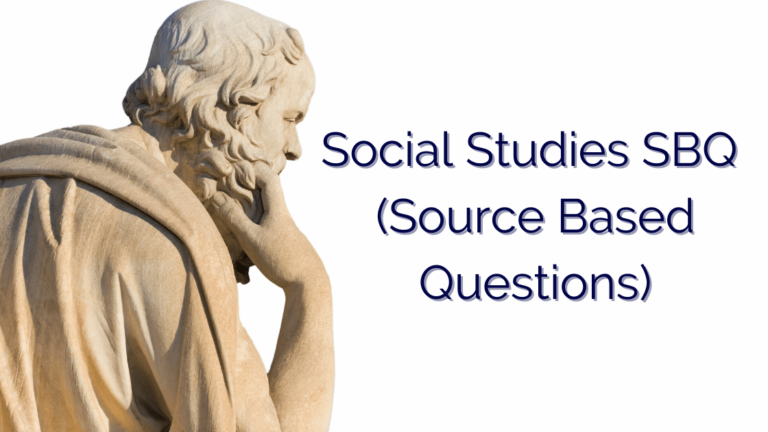
Social Studies SBQ (Source Based Questions)
Mastering Social Studies Source Based Questions is one of the most difficult tasks. Read on to find out more.
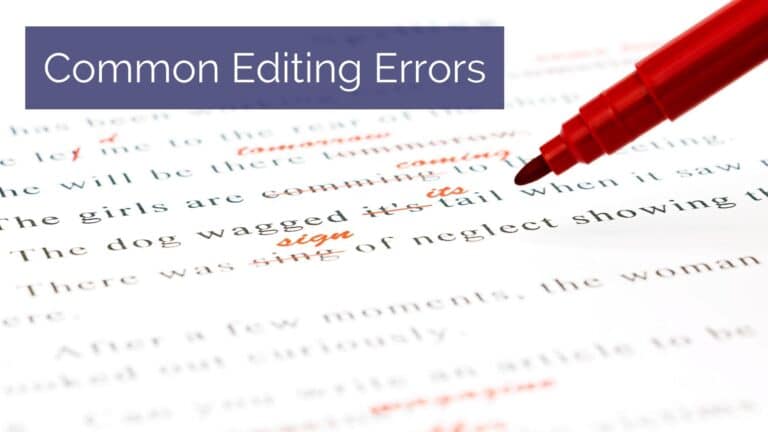
How to score 10/10 for Editing
Do you keep failing your Editing? How can you improve your Editing? Read on to find out how you can score full marks for the Editing section of the English paper.
GP Tuition & O Level English Tuition
O Level English Tuition: Situational Writing Tips and Model Essay

Understanding O Level English Situational Writing
Situational writing in O Level English requires meticulous attention to crafting text that aligns with the specified context, purpose, and audience, emphasising the use of internationally acceptable English. This task demands precision, challenging students to articulate their thoughts within 250-350 words across various formats like emails, reports, or speeches. It assesses students’ capability to write clearly, effectively, relevantly, and coherently, demonstrating an adept understanding of both written and visual texts at literal, inferential, and evaluative levels. Mastery in situational writing hinges on recognising how language use can fulfil a specific purpose and make a significant impact, underlining the importance of the correct format and tone to engage the intended audience successfully and meet the desired objectives.
O Level English Situational Writing Formats
Understanding the different formats of situational writing is essential for success in O Level English. Each format, whether a letter, email, report, article, essay, or speech, has distinct characteristics that must be adhered to.
Formal and Informal Letter Formats
Formal letters are characterised by a structured layout, formal salutations, and a polite tone. They communicate with entities like schools, businesses, or local councils. Informal letters, on the other hand, adopt a more casual tone suitable for personal correspondence with friends or family.
Formal Letter:
- Name and address of sender and recipient, and date, are all left-aligned
- Salutation such as “Dear Sir/Madam,”
- Purpose of the letter in the introduction
- Body paragraphs structured with each point
- Formal sign-off such as “Yours sincerely,” followed by full name
Informal Letter:
- Casual opening like “Hi [Name],”
- Conversational tone throughout
- Paragraphs with personal news or information
- Casual sign-off like “Best wishes,” or “Cheers,” followed by first name only
Formal and Informal Email Formats
The format of formal emails should include a clear subject line, a professional salutation, and a closing with the sender’s name and credentials. Informal emails can be more relaxed, using a personal greeting and a simple signature.
Formal Email:
- Subject line that encapsulates the email’s purpose
- Professional greeting
- Introduction stating the email’s intent
- Body that elaborates on the main points with a formal tone
- Formal closing with sender’s full name and position
Informal Email:
- Casual subject line
- Friendly greeting such as “Hey [Name],”
- Relaxed tone with short paragraphs
- Casual sign-off like “Talk soon,” or “Take care,” with first name only
Report Format
A report must have a clear title, subheadings for organisation, and a concise summary of findings or recommendations structured in an easy-to-navigate layout that supports the text’s purpose.
- Title at the top of the page
- Introduction outlining the report’s purpose
- Headings and subheadings to organise information
- Conclusions and recommendations as applicable
- Signature line at the end with the author’s name and position
Article Format
Articles should grab attention with a catchy headline and maintain interest with well-structured arguments and a strong conclusion.
- Catchy headline
- Byline with the writer’s name
- Opening paragraph that summarises the article
- Main body divided into several paragraphs with subheadings
- Concluding statement or call to action
Essay Format
Essays require a clear thesis, body paragraphs supporting the thesis with evidence, and a concluding statement reinforcing the main argument.
- Introduction with a thesis statement
- Main body organised into paragraphs, each supporting the thesis
- Use of evidence and examples to back up points
- Conclusion summarising the argument and reiterating the thesis
Speech Format
Speeches must engage the audience from the greeting, maintain interest with clear points, and conclude with a memorable closing that reinforces the speech’s key message or call to action.
- Greeting and introduction
- Statement of purpose or thesis
- Main points presented clearly with support
- Conclusion summarising key points and a final thought or call to action
- Thank-you and closing
Distinguishing Formal and Informal English O Level Situational Writing Formats
The nuances of situational writing in O Level English hinge on the distinction between formal and informal formats. Whether applying for an internship or writing to a loved one, appropriate tone, vocabulary, and sentence structure is key. Here, we examine these differences to guide students in tailoring their writing to any given scenario.
The tone sets the mood for your writing. Formal writing is serious and respectful, while informal writing is conversational and friendly. Choose a tone that aligns with your intention and your audience’s expectations.
Precision and seriousness characterise formal vocabulary; conversely, informal writing allows for a relaxed, everyday word choice that might include colloquial expressions.
Sentence Structure
Formal writing favours complex sentences and a traditional structure, whereas informal writing often opts for brevity and simplicity.
Personal Pronouns
Formal writing limits the use of personal pronouns to avoid subjectivity, while informal writing uses them liberally to create a personal connection.
Phrasal verbs
Phrasal verbs lend a conversational tone to informal writing. In formal contexts, opting for precise verbs can enhance clarity and professionalism.
Passive Voice
The passive voice can lend an objective tone to formal writing; however, active voice makes informal writing direct and engaging.
Tips for Enhancing O Level English Situational Writing Skill
Improving your situational writing skills for O Level English requires deliberate practice and smart strategies. Here are tips to help you refine your writing:
- Understand the Formats : Familiarise yourself with different writing formats — letters, reports, speeches, and emails. Recognise the conventions for each and practice writing in both formal and informal styles.
- Read and Analyse : Study high-scoring situational writing samples. Note how they address purpose, audience, and context (PAC). Identify effective use of tone, vocabulary, and sentence structure.
- Practice Regularly : Use practice prompts that mimic O Level questions. Set a timer to simulate exam conditions and focus on writing clearly and concisely within the word limit.
- Brainstorming Techniques : Before writing, brainstorm ideas for content. Use mind maps to organise thoughts and ensure you cover all required points in your response.
- Expand Your Vocabulary : Learn new words daily and practice using them in sentences. A rich vocabulary allows for precise expression in both formal and informal writing.
- Seek Feedback : After writing, seek feedback from teachers or peers. Understand your mistakes and learn how to correct them.
- Revise and Rewrite : Don’t be content with your first draft. Revise and rewrite sections to improve clarity and flow. Pay attention to feedback received and implement changes.
- Master PAC : Always consider Purpose, Audience, and Context. Tailor your language and content to suit these elements effectively.
- Stay Updated : Stay aware of current events and general knowledge. This will allow you to use relevant examples in your writing, making your arguments more convincing.
- Use Active Voice : Practice using the active voice to make your writing more direct and dynamic. It’s essential in informal writing and for creating an engaging narrative.
- Avoid Slang and Jargon : While familiar language is good in informal writing, avoid slang and jargon that may confuse the reader or come across as unprofessional.
- Edit Ruthlessly : After writing, edit your work. Check for grammar mistakes and unnecessary wording, and ensure the tone remains consistent throughout.
Common Mistake to Avoid in English O Level Situational Writing
To excel in O Level English situational writing, be aware of common mistakes. Here’s what to watch out for:
- Straying From Purpose : Always align your writing with the task’s objective. If you’re to invite someone, your entire piece should revolve around this action without deviation.
- Misjudging the Audience : Know who you’re writing to. Tailoring content to your audience is crucial; failure to do so can disconnect your message and reduce its impact.
- Forgetting Formality : Always maintain politeness and formality when needed. For instance, use “My uncle and I would like to invite you…” instead of “Uncle Tim and me…”
- Inaccuracies in Details : Double-check for factual correctness. An error as minor as the wrong date can cost marks.
- Using Short Forms : Avoid contractions and abbreviations in formal writing. Spell out months and avoid acronyms unless they’re well-known or explained.
- Lacking a Clear Conclusion : End with a clear call to action, especially when the task involves an invitation or request.
- Neglecting Punctuation : Proper punctuation is non-negotiable. Commas, periods, and question marks guide the reader through your text and clarify meaning.
Frequently Asked Questions about O Level English Situational Writing Format
How can i effectively manage my time during the o level english situational writing exam to ensure i complete all tasks within the allotted time.
Effective time management is essential for completing all tasks within the allotted time during your O Level English situational writing exam. Allocate approximately 5 minutes for planning, 35 minutes for writing, and the final 5 minutes for reviewing. Practising timed drills can significantly improve your efficiency and comfort with this time distribution on exam day. For additional guidance and strategies to refine your skills, enrol in our O Level English tuition today.
Are visual stimuli always provided in situational writing?
Yes, visual stimuli accompany the situational writing task to offer context and direction. Carefully analyse these visuals as they are integral to crafting a response that aligns with the exam’s requirements.
How do I maintain the correct tone in situational writing?
Maintaining the correct tone in situational writing involves identifying the task’s purpose, audience, and context to choose the appropriate tone. For formal writing, use a respectful, professional tone; for informal scenarios, a more relaxed, conversational tone is suitable. Adjust your language accordingly.
Can I use my own words and phrases in situational writing?
Yes, you are expected to do so! Using your own words showcases creativity and language mastery in your situational writing. Ensure your expressions remain relevant to the context, tone, format, and audience. This approach is equally valuable when responding to O Level English essay questions, where expressing ideas uniquely can enhance your engagement with the exam’s requirements.
Share this:
Discover more from knowledge skills.
Subscribe now to keep reading and get access to the full archive.
Type your email…
Continue reading
You must be logged in to post a comment.

Choose Your Test
Sat / act prep online guides and tips, how to format a college essay: 15 expert tips.
College Essays

When you're applying to college, even small decisions can feel high-stakes. This is especially true for the college essay, which often feels like the most personal part of the application. You may agonize over your college application essay format: the font, the margins, even the file format. Or maybe you're agonizing over how to organize your thoughts overall. Should you use a narrative structure? Five paragraphs?
In this comprehensive guide, we'll go over the ins and outs of how to format a college essay on both the micro and macro levels. We'll discuss minor formatting issues like headings and fonts, then discuss broad formatting concerns like whether or not to use a five-paragraph essay, and if you should use a college essay template.
How to Format a College Essay: Font, Margins, Etc.
Some of your formatting concerns will depend on whether you will be cutting and pasting your essay into a text box on an online application form or attaching a formatted document. If you aren't sure which you'll need to do, check the application instructions. Note that the Common Application does currently require you to copy and paste your essay into a text box.
Most schools also allow you to send in a paper application, which theoretically gives you increased control over your essay formatting. However, I generally don't advise sending in a paper application (unless you have no other option) for a couple of reasons:
Most schools state that they prefer to receive online applications. While it typically won't affect your chances of admission, it is wise to comply with institutional preferences in the college application process where possible. It tends to make the whole process go much more smoothly.
Paper applications can get lost in the mail. Certainly there can also be problems with online applications, but you'll be aware of the problem much sooner than if your paper application gets diverted somehow and then mailed back to you. By contrast, online applications let you be confident that your materials were received.
Regardless of how you will end up submitting your essay, you should draft it in a word processor. This will help you keep track of word count, let you use spell check, and so on.
Next, I'll go over some of the concerns you might have about the correct college essay application format, whether you're copying and pasting into a text box or attaching a document, plus a few tips that apply either way.

Formatting Guidelines That Apply No Matter How You End Up Submitting the Essay:
Unless it's specifically requested, you don't need a title. It will just eat into your word count.
Avoid cutesy, overly colloquial formatting choices like ALL CAPS or ~unnecessary symbols~ or, heaven forbid, emoji and #hashtags. Your college essay should be professional, and anything too cutesy or casual will come off as immature.

Mmm, delicious essay...I mean sandwich.
Why College Essay Templates Are a Bad Idea
You might see college essay templates online that offer guidelines on how to structure your essay and what to say in each paragraph. I strongly advise against using a template. It will make your essay sound canned and bland—two of the worst things a college essay can be. It's much better to think about what you want to say, and then talk through how to best structure it with someone else and/or make your own practice outlines before you sit down to write.
You can also find tons of successful sample essays online. Looking at these to get an idea of different styles and topics is fine, but again, I don't advise closely patterning your essay after a sample essay. You will do the best if your essay really reflects your own original voice and the experiences that are most meaningful to you.
College Application Essay Format: Key Takeaways
There are two levels of formatting you might be worried about: the micro (fonts, headings, margins, etc) and the macro (the overall structure of your essay).
Tips for the micro level of your college application essay format:
- Always draft your essay in a word processing software, even if you'll be copy-and-pasting it over into a text box.
- If you are copy-and-pasting it into a text box, make sure your formatting transfers properly, your paragraphs are clearly delineated, and your essay isn't cut off.
- If you are attaching a document, make sure your font is easily readable, your margins are standard 1-inch, your essay is 1.5 or double-spaced, and your file format is compatible with the application specs.
- There's no need for a title unless otherwise specified—it will just eat into your word count.
Tips for the macro level of your college application essay format :
- There is no super-secret college essay format that will guarantee success.
- In terms of structure, it's most important that you have an introduction that makes it clear where you're going and a conclusion that wraps up with a main point. For the middle of your essay, you have lots of freedom, just so long as it flows logically!
- I advise against using an essay template, as it will make your essay sound stilted and unoriginal.

Plus, if you use a college essay template, how will you get rid of these medieval weirdos?
What's Next?
Still feeling lost? Check out our total guide to the personal statement , or see our step-by-step guide to writing the perfect essay .
If you're not sure where to start, consider these tips for attention-grabbing first sentences to college essays!
And be sure to avoid these 10 college essay mistakes .

Ellen has extensive education mentorship experience and is deeply committed to helping students succeed in all areas of life. She received a BA from Harvard in Folklore and Mythology and is currently pursuing graduate studies at Columbia University.
Ask a Question Below
Have any questions about this article or other topics? Ask below and we'll reply!
Improve With Our Famous Guides
- For All Students
The 5 Strategies You Must Be Using to Improve 160+ SAT Points
How to Get a Perfect 1600, by a Perfect Scorer
Series: How to Get 800 on Each SAT Section:
Score 800 on SAT Math
Score 800 on SAT Reading
Score 800 on SAT Writing
Series: How to Get to 600 on Each SAT Section:
Score 600 on SAT Math
Score 600 on SAT Reading
Score 600 on SAT Writing
Free Complete Official SAT Practice Tests
What SAT Target Score Should You Be Aiming For?
15 Strategies to Improve Your SAT Essay
The 5 Strategies You Must Be Using to Improve 4+ ACT Points
How to Get a Perfect 36 ACT, by a Perfect Scorer
Series: How to Get 36 on Each ACT Section:
36 on ACT English
36 on ACT Math
36 on ACT Reading
36 on ACT Science
Series: How to Get to 24 on Each ACT Section:
24 on ACT English
24 on ACT Math
24 on ACT Reading
24 on ACT Science
What ACT target score should you be aiming for?
ACT Vocabulary You Must Know
ACT Writing: 15 Tips to Raise Your Essay Score
How to Get Into Harvard and the Ivy League
How to Get a Perfect 4.0 GPA
How to Write an Amazing College Essay
What Exactly Are Colleges Looking For?
Is the ACT easier than the SAT? A Comprehensive Guide
Should you retake your SAT or ACT?
When should you take the SAT or ACT?
Stay Informed
Get the latest articles and test prep tips!
Looking for Graduate School Test Prep?
Check out our top-rated graduate blogs here:
GRE Online Prep Blog
GMAT Online Prep Blog
TOEFL Online Prep Blog
Holly R. "I am absolutely overjoyed and cannot thank you enough for helping me!”
O level Social Studies
Structured Response Essay e-Guidebook
O and n level social studies structured response essays eguidebook.
The long awaited guidebook for O and N level Social Studies Structured Response Essays is finally here! In it is filled with summaries of the different case studies and examples found in the O level Social Studies Textbook. The summaries are also arranged in a format which is closely aligned to the methodology taught to answer the essay section. The guidebook also contains links to issues which are essential for students to write to score that A in the O level Social Studies paper.
Only e-copies are sold. They can be bought through here: O level Social Studies Essays Guidebook

IMAGES
VIDEO
COMMENTS
An expository essay is one that explores and considers in depth the different aspects and perspectives to a particular topic or subject matter. We typically see two types of expository essays appearing in the O Level examination: argumentative and discursive essays. 5.
Argumentative Essay | The Ultimate Guide | O Level (1123) If you want to know how to write a perfect argumentative essay, you will love this complete step-by-step guide I am about to share with you. In fact, these are the exact strategies I used to ace this question in my English exam. So keep reading.
4. Conclusion | O Level English Expository Essay. In summary, the PEEL format equips students with a structured framework to effectively organise their ideas and present them with clarity and flow. Ultimately, incorporating the PEEL format empowers students to craft well-structured essays that engage readers, showcase their depth of knowledge ...
In this video, you will learn how to write the best argumentative essay for O Level and IGCSE English. ️ Narrative Writing Made Simple: https://www.youtube....
The basic structure of an essay always consists of an introduction, a body, and a conclusion. But for many students, the most difficult part of structuring an essay is deciding how to organize information within the body. This article provides useful templates and tips to help you outline your essay, make decisions about your structure, and ...
At college level, you must properly cite your sources in all essays, research papers, and other academic texts (except exams and in-class exercises). Add a citation whenever you quote, paraphrase, or summarize information or ideas from a source. You should also give full source details in a bibliography or reference list at the end of your text.
Argumentative Essays. Argumentative Essays - Tips & Tricks. Read the topic carefully. Underline the main point of the topic (such as Politics). Decide 'for' or 'against' (i.e. are you in favour or against?). Jot down all the RELEVANT & LOGICAL points related to your opinion. Spend 5-10 minutes doing this in the form of notes.
Personal recount essay. Descriptive essay. Reflective essay. Discursive essay. Argumentative essay. 1. Narrative Essay. As the name suggests, the goal of the narrative essay is to narrate a fictional story. However, that doesn't mean you can't sprinkle in some personal experiences to spice up your writing.
Syllabus overview. Cambridge O Level English Language is designed for learners who speak English at home or at school, at near first language level. The course enables learners to: develop the ability to communicate clearly, accurately and effectively when writing. use a wide range of vocabulary, and the correct grammar, spelling and punctuation.
O-LEVEL ENGLISH ESSAYS VOLUME 1 Betty Kirkpatrick O-LEVEL ENGLISH ESSAYS 1 Selected essays to enhance students' writing skills provides a wide range of essays on various topics to enable students to learn how skilful writers develop ideas and present them logically and fluently. This 3-volume set of a collection of essays prompts
There are no set rules for how to structure a college application essay, but you should carefully plan and outline to make sure your essay flows smoothly and logically. Typical structural choices include. a series of vignettes with a common theme. a single story that demonstrates your positive qualities. Although many structures can work, there ...
1. Introduction | Types of Composition Essays Tested at O Level / G3 English . Unlike the PSLE where students are exposed primarily to writing stories, the O Level / G3 English syllabus at secondary school expects students to be proficient in various text types or text genres. Text types refer to different styles of presenting information, classified based on the intent or purpose of the ...
Strategies for Essay Writing Table of Contents Tips for Reading an Assignment Prompt . . . . . 2-4 Asking Analytical Questions . . . . . . . 5-7 Thesis ... o If you're writing a research paper, do not assume that your reader has read all the sources that you are writing about. You'll need to offer context about
Descriptive writing is just like painting a picture (with words). In this video, you will learn how to write an amazing descriptive essay (especially if you ...
Dearest Aunt May, Greeting (Use the term you address this person) Paragraph 1. Introduction (Check-in / Context / Purpose) Paragraphs 2 - 4. Body Paragraphs (Answer the question using the given visual stimulus. Explain and support your answer, using details from the visual stimulus and your own)
O Level English Situational Writing Formats. Understanding the different formats of situational writing is essential for success in O Level English. Each format, whether a letter, email, report, article, essay, or speech, has distinct characteristics that must be adhered to. Formal and Informal Letter Formats
Learn from the best with our extensive collection of IGCSE essay examples. Immerse yourself in successful narratives to understand the art of effective storytelling and elevate your writing to new heights. Stay up-to-date with the latest narrative essay topics for A level, O Level and IGCSE with our 2023 past paper questions.
Welcome to our oasis of descriptive essay topics and expert guidance in the realm of descriptive writing. Whether you are an A Level, O Level, or IGCSE student, our platform has meticulously curated a collection of 100+ best descriptive essay topics, specifically designed to spark your creativity and captivate your readers.
In this English Language examination, candidates will be assessed on their ability to: speak and write in internationally acceptable English. respond, in speech or writing, to a variety of written, spoken and visual texts. speak, read aloud and write to suit purpose, audience and context. speak and write using appropriate register and tone.
Again, we'd recommend sticking with standard fonts and sizes—Times New Roman, 12-point is a standard workhorse. You can probably go with 1.5 or double spacing. Standard margins. Basically, show them you're ready to write in college by using the formatting you'll normally use in college.
While single-spaced essays are usually acceptable, your essay will be easier to read if it's 1.5 or double-spaced. Clearly delineate your paragraphs. A single tab at the beginning is fine. Use a font that's easy to read, like Times, Arial, Calibri, Cambria, etc. Avoid fonts like Papyrus and Curlz. And use 12 pt font.
The long awaited guidebook for O and N level Social Studies Structured Response Essays is finally here! In it is filled with summaries of the different case studies and examples found in the O level Social Studies Textbook. The summaries are also arranged in a format which is closely aligned to the methodology taught to answer the essay section.